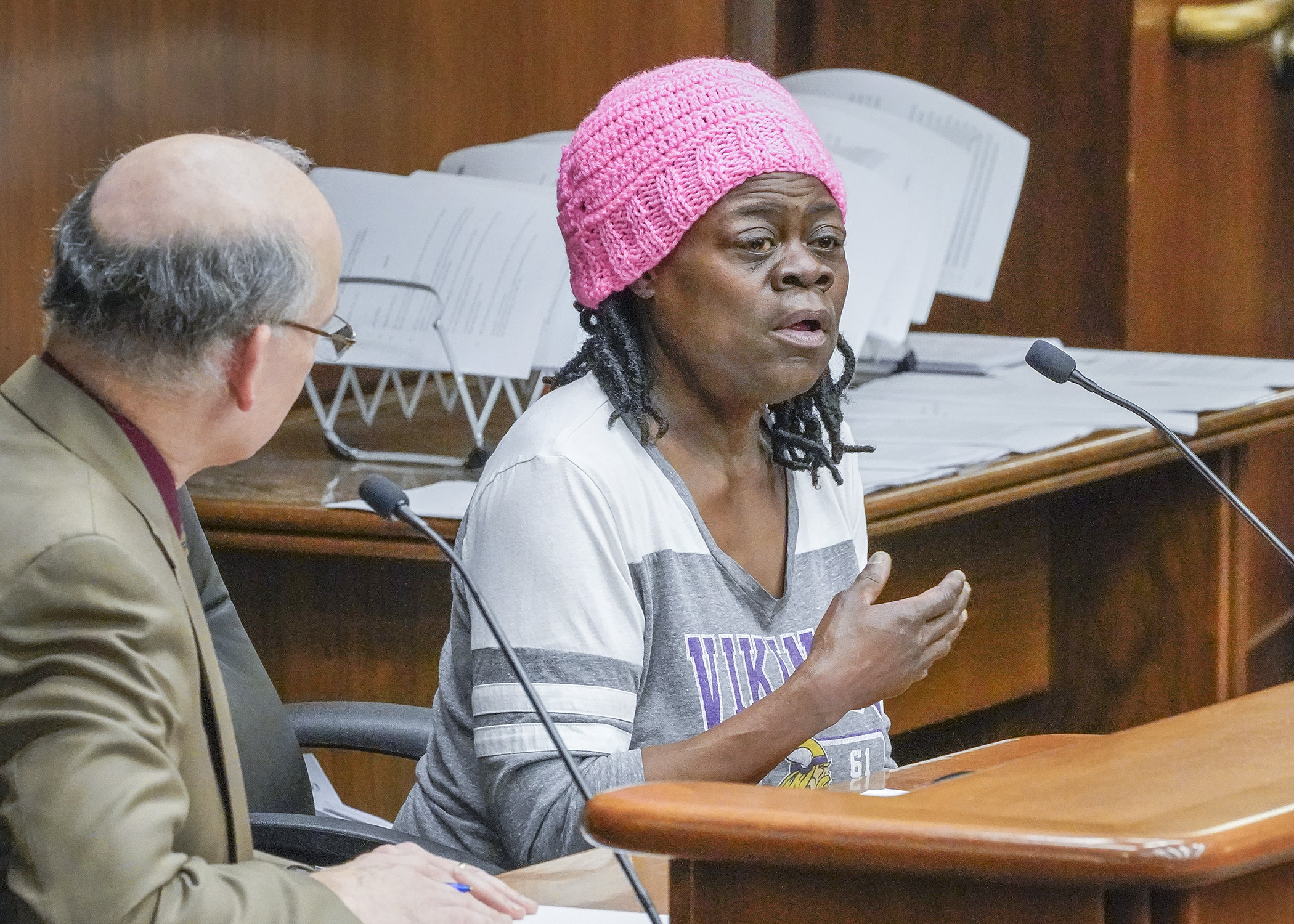‘Dustin Luke Shields Act’ could minimize rental housing lead hazards

Lead poisons children.
That’s what happened to Ticiea Fletcher’s two kids, Dustin and Logan. And that’s exactly what HF1507 seeks to prevent.
Sponsored by Rep. Peter Fischer (DFL-Maplewood), the so-called “Dustin Luke Shields Act” would appropriate $20 million over the 2024-25 biennium for a Minnesota Housing Finance Agency grant program assessing and mitigating lead hazards in rental housing.
On Tuesday, the House Housing Finance and Policy Committee laid the bill over, as amended, for possible omnibus bill inclusion.
Fischer said with no safe level of lead, his bill would identify homes testing positive for lead and provide grants to treat, encapsulate or remove it.
Grant resources would need to target landlords and tenants with high concentrations of lead poisoning and would require initial grant awards to serve one area in and out of the metropolitan counties.
Nonprofits and political subdivisions distributing grants would need to provide lead testing and remediation to:
- landlords with fewer than 12 units where tenant’s income does not exceed 60% of the area median income;
- landlords of residential buildings with more than 12 units where at least half of the tenants are below 60% area median income; and
- tenants with income at or below 60% area median income.
Though lead poisoning disproportionately affects Black communities, Fletcher stressed that it “doesn’t have a color” and could affect anybody in the room, just like her two children with a disability.
Lead is a neurotoxin that can harm children’s intelligence, behavior and growth, said Rachelle Menanteau Peleska, director of education and outreach at the Sustainable Resources Center.
Anyone in a pre-1978 home is at risk, she says, though children younger than age 6 are the most vulnerable.
“One in every three homes in Minnesota has lead paint in it, according to the Department of Health,” said Sue Watlov Phillips, executive director of Metropolitan Interfaith Council on Affordable Housing.
If a child develops a disability because of lead paint, we will spend about $100,000 per year per child for the rest of their life through things like special education, disability services and Medicaid, she said.
Prevent blood poisoning for a couple of kids and the program will pay for itself, Fischer said.
Related Articles
Search Session Daily
Advanced Search OptionsPriority Dailies
Speaker Emerita Melissa Hortman, husband killed in attack
By HPIS Staff House Speaker Emerita Melissa Hortman (DFL-Brooklyn Park) and her husband, Mark, were fatally shot in their home early Saturday morning.
Gov. Tim Walz announced the news dur...
House Speaker Emerita Melissa Hortman (DFL-Brooklyn Park) and her husband, Mark, were fatally shot in their home early Saturday morning.
Gov. Tim Walz announced the news dur...
Lawmakers deliver budget bills to governor's desk in one-day special session
By Mike Cook About that talk of needing all 21 hours left in a legislative day to complete a special session?
House members were more than up to the challenge Monday. Beginning at 10 a.m...
About that talk of needing all 21 hours left in a legislative day to complete a special session?
House members were more than up to the challenge Monday. Beginning at 10 a.m...